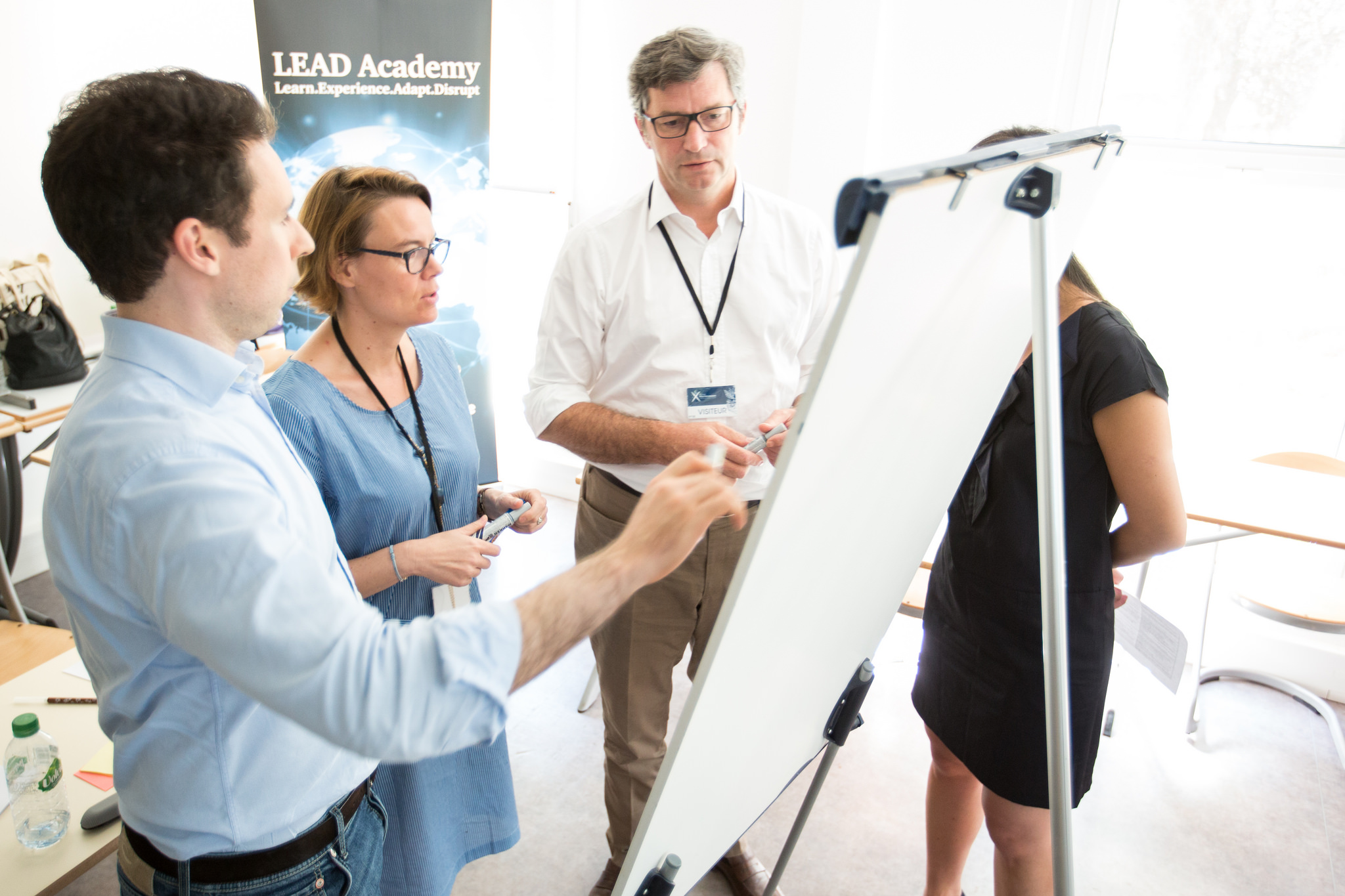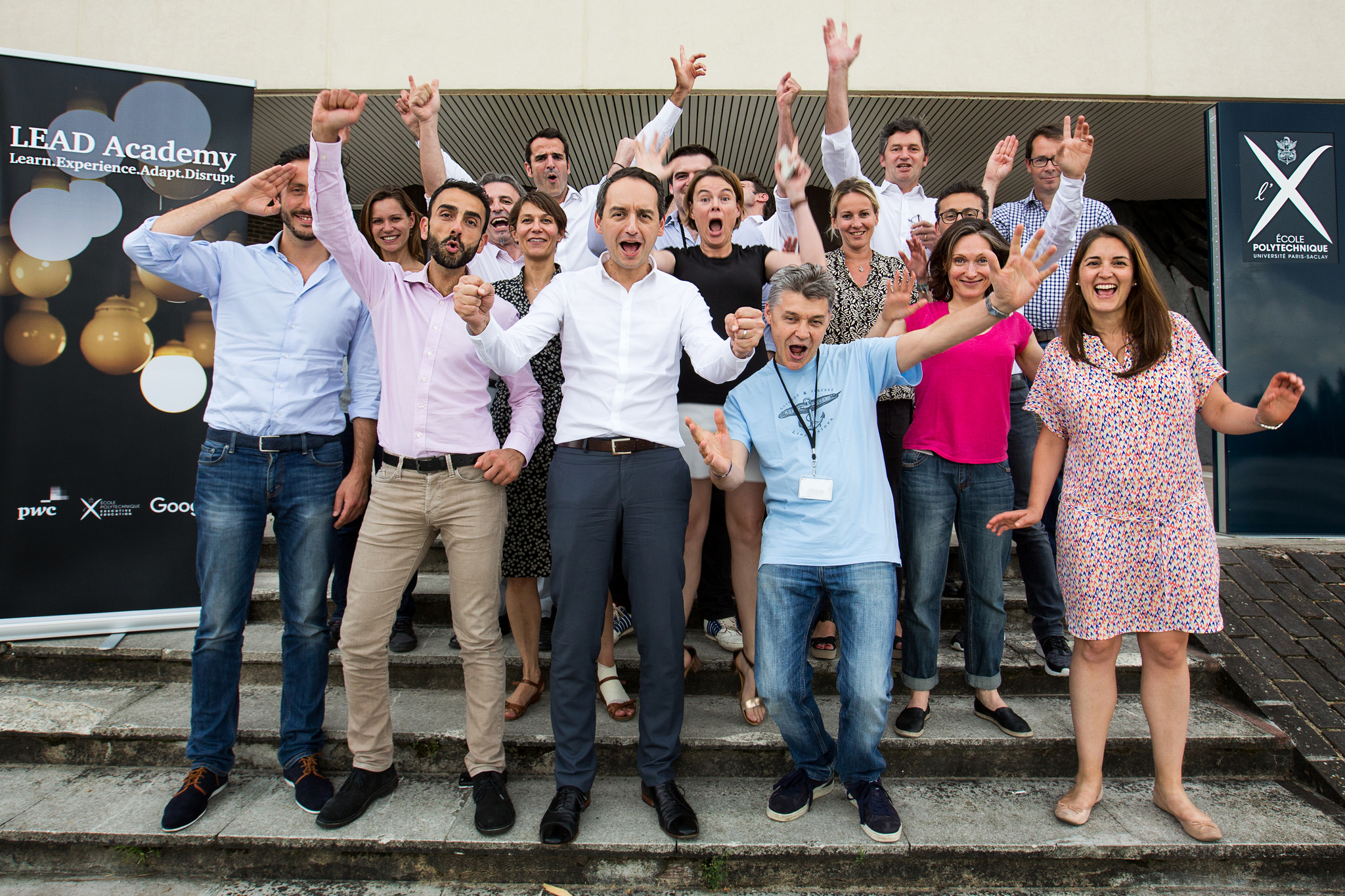In the summer of 2016, the École polytechnique announced the launch, with PwC and Google, of the LEAD Academy, a training program on “the economies of the future for the leaders of tomorrow”. The President of the Management of Innovation and Entrepreneurship (MIE) department of the Ecole polytechnique, Florence Charue-Duboc, tells us more about the origins of this initiative, its aims, and the prospects it offers for Paris-Saclay.
– What were the circumstances that led to the creation of the LEAD Academy training? What added value does it provide with regard to the management research tradition of the Ecole polytechnique?
Until now our teaching activity was aimed primarily at students in initial training. However, it can also be extended to include serving managers with more experience, who need to flesh out their knowledge. For some years now, the École has had a training offer, outside of the initial training, but aimed at different audiences. We did however detect a growing interest from large companies in a training program adapted to their high-potential employees, in other words those expected to be future leaders, but also leaders of rapidly expanding start-ups. We felt we had a role to play in allowing this category of players to better understand the reasons for current developments in terms of innovation, regulations, environment, etc.
– How did you come to share this observation with PwC and Google?
In 2015, initial contact was made with the consulting company PwC, which itself observed that large companies are faced with a certain number of disruptions relating to the demographic explosion, accelerating urbanization, the boom in technological progress, climate change or the scarcity of resources.
Faced with these disruptions, which break the traditional value chains and shift the centers of gravity of the world economy – which is the other conviction of PwC – it is important for large companies to go on the offensive by considering these disruptions not as a threat that will restrict their ability to develop but, on the contrary, as opportunities which will lead to new markets, in particular through a transformation of their management methods.
PwC considered that, with our experience in high-level training, we could devise a program aimed at high-potential employees, to support them in their reflections on new business to be conceived in response to these disruptions. The first exchanges took place less than a year ago.

– Less than a year? An illustration there of just how fertile the ground was…
That’s right. I would add that this relatively rapid implementation was made possible by a procedure involving a genuine partnership to which we immediately committed with PwC. And then we spontaneously thought of Google to extend this partnership. Because for traditional companies, it is clear that the disruptions they face are closely linked to the digital sector and the digitalization of their activities. In fact, the digital world is transforming organizations at different levels: whether in terms of marketing, internal processes, supply of services, etc. It therefore seemed logical to us to link up with a major player in this domain. But very quickly we agreed on the need for the program to cover other disruptions, linked to environmental constraints and to the new regulations, to the challenges of cultural diversity, as well as technological issues.
– What is the added value of your training?
There is already a lot of training available for high-potential employees. There are however two features of our program that set it apart from the existing offer. Firstly, the fact that it is organized around a specific topic – new businesses in the face of the various disruptions with which enterprise is confronted, in other words. And secondly, the fact that it is open to several companies: unlike many others, ours is an inter-company rather than an intra-company training program. It is not a question of reinforcing cohesion around a company culture, around top management with a background in several different roles within the same organization, but of comparing widely varying experiences. We became convinced during the creation of this program that it was enriching to meet managers from different sectors. Problems in the digital sector differ depending on the industry involved, whether that be insurance, transport, etc. We need to learn from sectors other than our own, and work together to construct a new offer.
Our training offers the opportunity to engage with other high-potential employees in reflecting on the disruptions facing large organizations. The plenary sessions cover six basic topics: innovation in a changing world, making use of the power of new technologies, developing a sustainable business, navigating regulations, managing the teams of tomorrow, constructing new business models. The program is then arranged around workshops in work groups of ten people in order to put into practice the subjects raised in plenary sessions, through specific scenarios proposed by the research teachers or the participants. Groups for sharing and creation will allow each participant to apply what they have learned to a problem specific to their business that they will have defined in advance with their company, with there being nothing to stop them from jointly developing answers with the partners from their work group. The conditions are therefore conducive to devising innovative models, even those furthest removed from the sector-based logic, with it being up to each participant to identify the lessons to be learned in the context of their own organization.
– A word about the reference to “leader” contained in the title of your training, LEAD Academy. It’s true that in this case it is an acronym (Learn, Experience, Adapt, Disrupt). But what would you say to those who consider that, when faced with disruptions, what is needed is some kind of collective, rather than the figure of the heroic manager?
In the context with which we are familiar, there are already many training offers that cover the question of leadership and management styles to be envisaged. We wanted to offer something to complement the existing offers, with the firm belief that the coordination of these transformation processes is a genuine challenge, one that we feel high-potential employees, earmarked as future leaders in their companies, need to be made aware of, taking into account the emergence of new generations. Although the use of the concept of a leader is not yet justified, there is no doubt that it takes on a whole new significance in innovative ecosystems. It is clear that collaboration with start-ups, in particular, calls for new forms of leadership.


